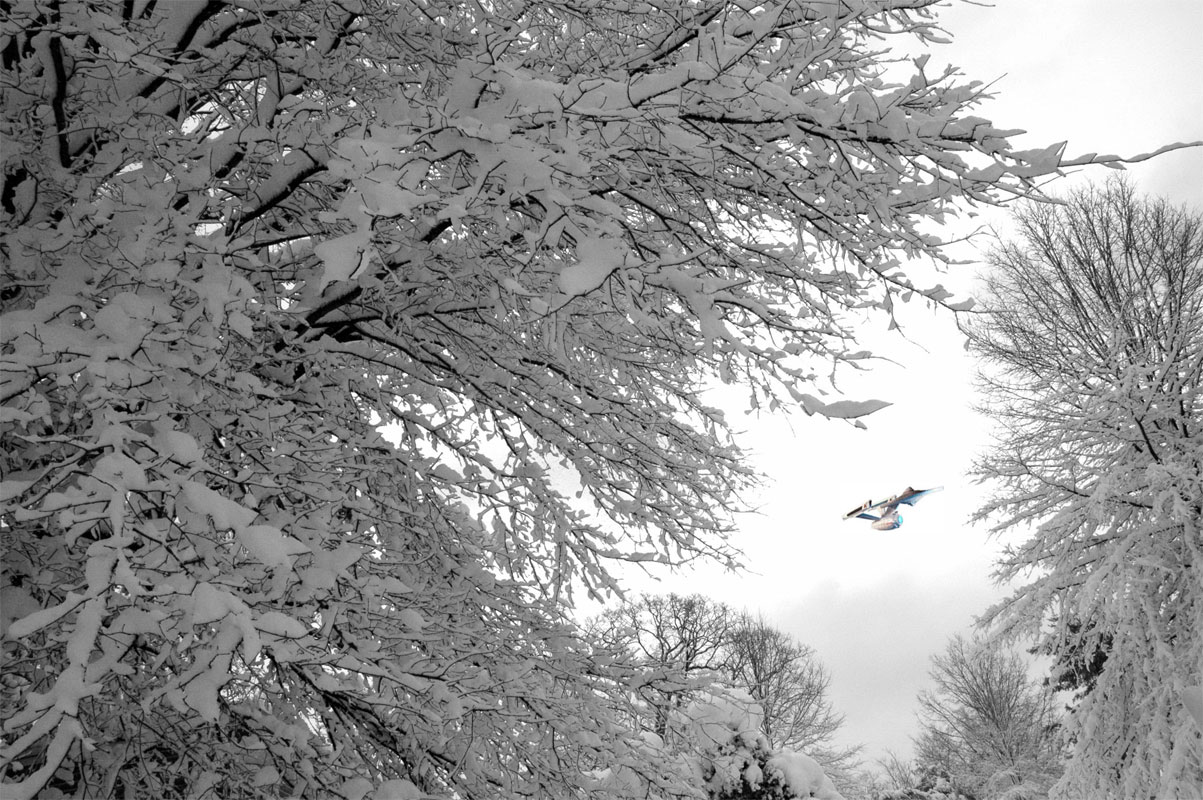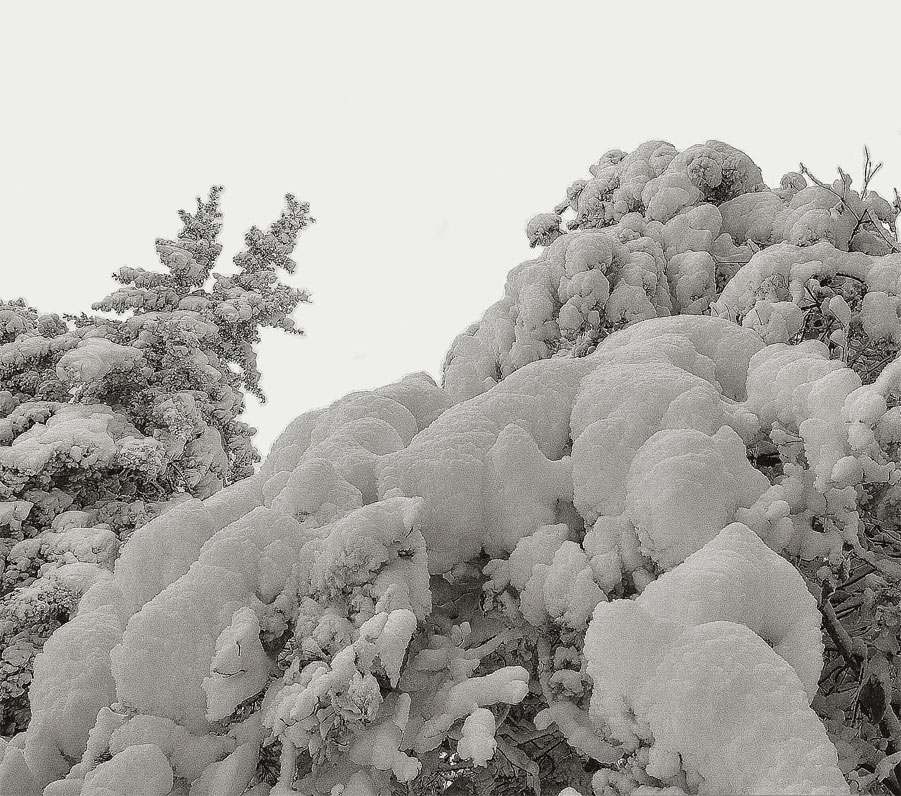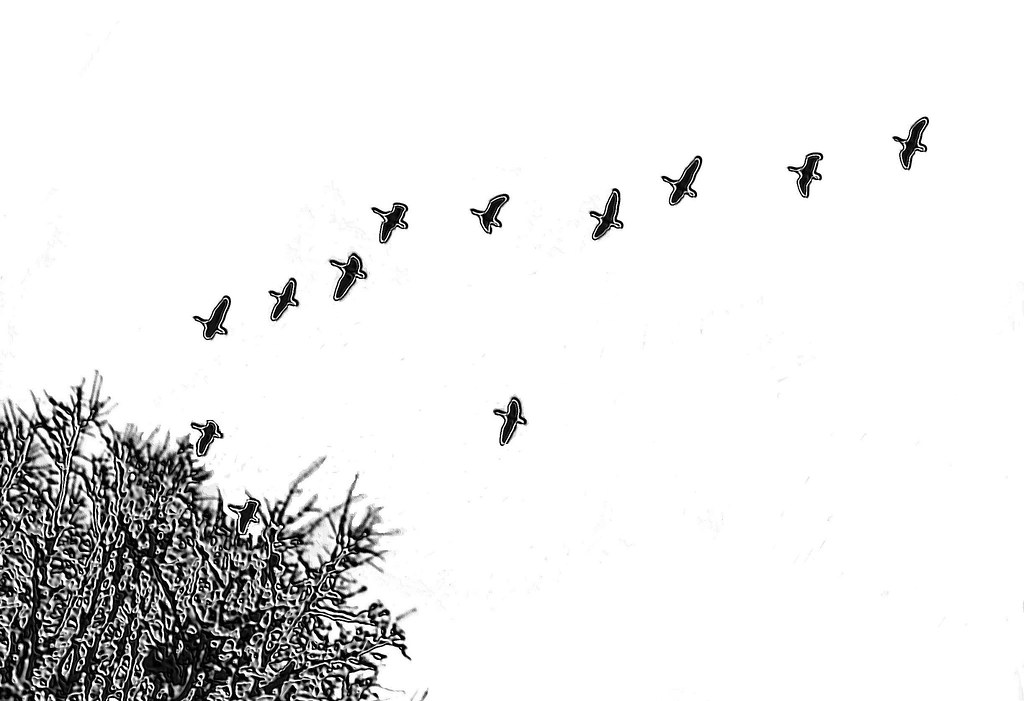Sunday, December 31, 2006
Just out on-line in the latest Review of Biblical Literature is a review by my friend Dr. Joe Cathey of Nava Bergman's textbook, The Cambridge Biblical Hebrew Workbook (click here). I would say that Joe believes the book is worth considering, but that he is not thrilled with it. One neat distinctive that he mentions is the author's use of "familiar" Hebrew personal names as signposts and memorization-devices to help readers learn vocabulary and grammar items. For those of us who regularly teach Hebrew, it might be worth getting the book or borrowing it just to get a hold of this new teaching strategy.
Saturday, December 30, 2006
MAR-SBL Draft Program and Abstracts Now On-Line

As Regional Coordinator of the MAR-SBL, I have been working hard the last few weeks coordinating a program for the Regional SBL Conference in Baltimore this upcoming March 1-2. I now have a draft of SBL sessions and a draft of SBL abstracts online at our MAR site.
Please look them over, and let me know what you think. It's always interesting to see what the current hot topics are in biblical studies! Any surprises? For the draft of sessions, click here. For the draft of abstracts, click here. (Both of these documents are PDF files.)
Exposition of Isaiah 61:10 - 62:3, post 3

For the preceding posts on this Sunday's reading, click here and here.
To read some good preaching notes on this text by OT scholar Dr. Ralph W. Klein, click here (PDF file).
The passage is from the third part of Isaiah's book, chs. 56 - 66, which address the eschatological fulfillment of the book's promises. These chapters picture the rise and witness of a new eschatological community of servant people of God. They are spawned by the work of the Suffering Servant of the book's second section, chs. 40 - 55.
The voice singing out the psalm of thanksgiving in vv. 10-11 is a representative of God's new servant community, one of those who currently mourn the contemporary state of affairs in Zion (61:3). At the Epiphany of God on earth, there will be much for the servants to be thankful for, including God's robing of them with "salvation" and "righteousness." The terms are parallel in 61:10; God's salvation entails not merely political vindication but a radical change in our very character as human beings. We are born anew in conformity to God's will and nature, given a new name denoting the change (62:4).
A new voice seems to speak in 62:1-3, the voice of one of God's watchkeepers / sentinels on Jerusalem's walls, who never keep silent, who constantly remind God of God's promises (62:6). The chief watchkeeper, of course, is the literary persona of the Isaiah himself. We may consider the literary figure of Isaiah, the "voice" behind the whole book, to be addressing us here.
Isaiah's message in 62:1-3 is a proclamation of our witness and mission. Here is an excerpt from Klein's notes:
 Nations and kings — shades of Epiphany! — will see our righteousness and our glory.... It is not that the nations see our good
Nations and kings — shades of Epiphany! — will see our righteousness and our glory.... It is not that the nations see our good
works and glorify God although elsewhere that too has its place (Matthew 5:16). What the movers and shakers (the kings and the nations) see is the transforming outcome of God's faithfulness in our lives. We are the best PR for God. Our glory is derivative and our salvation a gift. The nations will want to know where we got such
a gift, and so give us the chance to tell them.
To read some good preaching notes on this text by OT scholar Dr. Ralph W. Klein, click here (PDF file).
The passage is from the third part of Isaiah's book, chs. 56 - 66, which address the eschatological fulfillment of the book's promises. These chapters picture the rise and witness of a new eschatological community of servant people of God. They are spawned by the work of the Suffering Servant of the book's second section, chs. 40 - 55.
The voice singing out the psalm of thanksgiving in vv. 10-11 is a representative of God's new servant community, one of those who currently mourn the contemporary state of affairs in Zion (61:3). At the Epiphany of God on earth, there will be much for the servants to be thankful for, including God's robing of them with "salvation" and "righteousness." The terms are parallel in 61:10; God's salvation entails not merely political vindication but a radical change in our very character as human beings. We are born anew in conformity to God's will and nature, given a new name denoting the change (62:4).
A new voice seems to speak in 62:1-3, the voice of one of God's watchkeepers / sentinels on Jerusalem's walls, who never keep silent, who constantly remind God of God's promises (62:6). The chief watchkeeper, of course, is the literary persona of the Isaiah himself. We may consider the literary figure of Isaiah, the "voice" behind the whole book, to be addressing us here.
Isaiah's message in 62:1-3 is a proclamation of our witness and mission. Here is an excerpt from Klein's notes:
 Nations and kings — shades of Epiphany! — will see our righteousness and our glory.... It is not that the nations see our good
Nations and kings — shades of Epiphany! — will see our righteousness and our glory.... It is not that the nations see our goodworks and glorify God although elsewhere that too has its place (Matthew 5:16). What the movers and shakers (the kings and the nations) see is the transforming outcome of God's faithfulness in our lives. We are the best PR for God. Our glory is derivative and our salvation a gift. The nations will want to know where we got such
a gift, and so give us the chance to tell them.
Friday, December 29, 2006
"Shewa Fight" (Humor; Not to be Missed!)
Chris had a straightforward objective: "Create a simple animation illustrating a shewa fight. When two shewas are found at the beginning of a word (Hebrew is read right to left), the first shewa becomes a hirriq." His achievement is brilliant (click here to view).
HT: Kyle Stillings; Mary Thorpe (Thanks, Mary and Kyle!)

HT: Kyle Stillings; Mary Thorpe (Thanks, Mary and Kyle!)
Labels: humor
1 Christmas, Year C, continued: Isaiah 61:10 - 62:3
For the preceding post on this Sunday's reading, Isaiah 61:10 - 62:3, click here.

Let's look more closely at the theology of BEAUTY in the passage, and especially on the rather curious and profound effect Zion's new beauty appears to have on all the peoples of the world. This topic simply fascinates.

Beauty is certainly one of the wonders and attractions of weddings. All the guests are eager for the appearance of the bride, who will be decked in all her beauty. Here, God's servant people, the redeemed Zion, appears as a bride decked with jewels (61:10), a shining brightness (62:1), and God's beauteous glory (62:2). God's people become God's "crown of beauty [תפארת]," held tight in God's hand (62:3). God has granted God's people this beauty as pure gift.
When one holds a wedding, one normally invites guests. As I mentioned in the last post, Zion's God-gifted beauty is not for Zion's sake alone. Her new-found blessing "springs up before all the nations" (61:11). Nations and kings see her glory (62:2). God makes Jerusalem renowned throughout earth (62:7). Earth's peoples see the signal and throng to Zion's magnetic attraction (62:10; cf. Isaiah 11:10; 49:22-23; 55:4-5).
To earth's many peoples, beauty makes all the difference. I have found Elaine Scarry's book, On Beauty and Being Just, very helpful on this point. Her insights into the overpowering and transformative nature of beauty really illuminate Isaiah's theology. Beauty changes people, inspires them to foolish and slavish adoration, leads them to acts that add more beauty to the world.
Because of Zion's radical new beauty, earth's peoples fall over themselves to repair past injuries (62:8), to get intimate with Zion (49:23). Confronted by blazing beauty, the peoples are overpowered, fully vulnerable, yet increasingly exhilarated. Righteousness springs up before the nations (61:11) in a way that begins to make them righteous.
Scarry writes, "Surely what we should wish is a world where the vulnerability of the beholder is equal to or greater than the vulnerability of the person beheld, a world where the pleasure-filled tumult of staring is a prelude to acts that will add to the beauty already in the world---acts like making a poem...or acts like repairing an injury or a social injustice" (pp. 74-75).
Update on Current Poll
We're up to 25 votes on my current poll (run in cooperation with the MAR-SBL site), so I thought we'd check in on the numbers:

Comments anyone?
Prof. Chris Heard at the Higgaion blog is now reviewing chapter 2 of Dawkins' The God Delusion, and he is finding it very weakly argued. To check out the review, click here.
Here is a short excerpt from Chris's latest post:
I am ready to assume that Dawkins has actually thought through various arguments for and against God’s existence and has rationally reached the conclusion that no such being exists. However, as a matter of argumentation and rhetoric, Dawkins does not appear, in chapter 2, to actually be willing to test the God Hypothesis, or even to understand it very well. His primary mode of engagement with it seems to be mockery, and that hardly makes for reasoned discourse.

Comments anyone?
Prof. Chris Heard at the Higgaion blog is now reviewing chapter 2 of Dawkins' The God Delusion, and he is finding it very weakly argued. To check out the review, click here.
Here is a short excerpt from Chris's latest post:
I am ready to assume that Dawkins has actually thought through various arguments for and against God’s existence and has rationally reached the conclusion that no such being exists. However, as a matter of argumentation and rhetoric, Dawkins does not appear, in chapter 2, to actually be willing to test the God Hypothesis, or even to understand it very well. His primary mode of engagement with it seems to be mockery, and that hardly makes for reasoned discourse.
Thursday, December 28, 2006
First Sunday after Christmas, Year C: Isaiah 61:10 - 62:3
The appointed lesson for this Sunday is Isaiah 61:10 - 62:3. If you enjoy the sheer beauty of Christmas season, this text is for you!
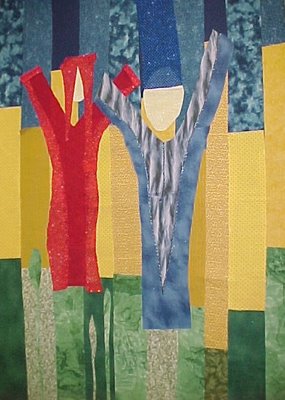

Tapestry by my student, N. Hawthorne
At the heart of Isaiah 40-66 lies God's wonder-filled purpose to show forth the divine majesty through God's people, endowing them with God's glory and royal beauty. What an honor and a hope of ennoblement for us! The redeemed people of God, God's true Israel and royal image, is destined to bear and display God's majestic splendor.
This is not a new plan of God, but part of God's purpose from creation when God made human beings in the image of God. The imago dei of each of us is all about God's intended majesty for us. Note the majestic, royal language here in 62:3. In God's ideal world, God's people are God's "crown of beauty" and "royal diadem."
This is not a new plan of God, but part of God's purpose from creation when God made human beings in the image of God. The imago dei of each of us is all about God's intended majesty for us. Note the majestic, royal language here in 62:3. In God's ideal world, God's people are God's "crown of beauty" and "royal diadem."
Verse 2 of our text reads, "The nations will see your righteousness, And all kings your glory." Royal glory is not for God's people alone, but is a beacon for the world. Zion's salvation is meant as a "burning torch," a righteousness that "goes forth like brightness."
From the beginning, according to Isa 40–66, God created Israel as an expression of divine glory (Isa 43:7; 62:2; cf. 44:1–2), a bearer of royal beauty and dignity among earth’s nations (Isa 45:14; 49:23; 54:3, 17; 60:14). This honor has the ultimate purpose of attracting outsiders to Israel’s divine lord (e.g., Isa 44:5; 45:14, 22; 48:20).
In Isaiah 55:4-5, the royal splendor of God’s newly redeemed servants becomes a "witness to the peoples" of the world, on a par with the witness of King David in the psalms (Pss 72:15–17; 89:25, 27, 36–37). Israel’s beatification provokes a jubilant pilgrimage of nations to Zion!
In Isaiah 55:4-5, the royal splendor of God’s newly redeemed servants becomes a "witness to the peoples" of the world, on a par with the witness of King David in the psalms (Pss 72:15–17; 89:25, 27, 36–37). Israel’s beatification provokes a jubilant pilgrimage of nations to Zion!
This is the "missionary" / "evangelistic" emphasis that is apparent in the pericope at hand. At Christmas season we are called to let God's splendor flash forth like brightness and evoke the yearnings of all earth's peoples.
Wednesday, December 27, 2006
Gerald Ford and Virginia Seminary

I bet some of you did not know that at one time Gerald Ford lived right here in Alexandria, about half a mile from Virginia Seminary where I teach. (Now, of course, this was long before I arrived here ten years ago!)
Ford regularly attended the Episcopal parish across Seminary Road from VTS, and was known to walk on our campus. In fact, one time one of the faculty members living on the same circle of houses where I now live caught Mr. Ford piling logs from our Seminary wood pile into his car trunk for his fireplace back home. (One of the nice benefits of being a VTS faculty member is free firewood!). (I believe the faculty member who "apprehended" Ford was Jack Goodwin.)

Ford's house here in Alexandria was built for Ford in 1955, and when Nixon appointed him Vice President, the Secret Service installed a "Command Post" in the garage! The house is now for sale, listed at $999,000.
The Fords continued to live in the house from 1955 until August 19, 1974, when they moved to the White House, ten days after Ford took the oath of office as President of the United States upon Nixon's resignation. Betty Ford wrote: "For me, leaving the White House wasn't nearly so much of a wrench as leaving our house in Alexandria."
Reviewing Ehud Ben Zvi's New Volume on the Prophetic Literature
I've just finished writing a review for CBQ of a new collection of essays: Utopia and Dystopia in Prophetic Literature (Publications of the Finnish Exegetical Society 92; Helsinki: Finnish Exegetical Society; Göttingen: Vandenhoeck & Ruprecht, 2006). Pp. [vi] + 298. Paper $56.

I cannot pre-publish the review here on-line, of course, but I can post at least one of my reflections that did not make it into the review, which is limited to 700 words.
After reading this collection, my mind is very much playing with how utopian literary theory can help illuminate some of the puzzling features of prophetic visions. I think it may help, for example, with understanding why a book such as Zechariah can contain competing and somwhat conflicting visions of coming dystopia and utopia.
Utopias, critically understood, are not pipe dreams disconected from the recognizable "outside" world. Rather, utopias purposely extrapolate their visions of alternative living from the real world of the here and now. They do so in order specifically to grapple with our real world of experience with all its limitations and challenges. In this model, alternating visions of the future in a book such as Zechariah are meant to give us alternative windows on our own lived world of the present and its varying challenges and failings.
The following essays are included in the volume: Ehud Ben Zvi, “Introduction” (pp. 1-12); Steven James Schweitzer, “Utopia and Utopian Literary Theory: Some Preliminary Observations” (pp. 13-26); Jack M. Sasson, “Utopian and Dystopian Images in Mari Prophetic Texts” (pp. 27-40); Matthew Neujahr, “Royal Ideology and Utopian Futures in the Akkadian ex eventu Prophecies” (pp. 41-54); Ehud Ben Zvi, “Utopias, Multiple Utopias, and Why Utopias at All? The Social Roles of Utopian Visions in Prophetic Books within Their Historical Context” (pp. 55-85); Kathleen M. O’Connor, “Jeremiah’s Two Visions of the Future” (pp. 86-104); James L. Crenshaw, “Deceitful Minds and Theological Dogma: Jer 17:5–11” (pp. 105-121); Hanna Liss, “‘Describe the Temple to the House of Israel’: Preliminary Remarks on the Temple Vision in the Book of Ezekiel and the Question of Fictionality in Priestly Literatures” (pp. 122-143); Julia M. O’Brien, “Once and Future Gender: Gender and the Future in the Twelve” (pp. 144-159); Philip R. Davies, “The Wilderness Years: Utopia and Dystopia in the Book of Hosea” (pp. 160-174); Marvin A. Sweeney, “The Dystopianization of Utopian Prophetic Literature: The Case of Amos 9:11–15” (pp. 175-185); Daniel L. Smith-Christopher, “Are the Refashioned Weapons in Micah 4:1–4 a Sign of Peace or Conquest? Shifting the Contextual Borders of a ‘Utopian’ Prophetic Motif” (pp. 186-209); Mark J. Boda, “From Dystopia to Myopia: Utopian (Re)Visions in Haggai and Zechariah 1–8” (pp. 210-248); Steven James Schweitzer, “Visions of the Future as Critique of the Present: Utopian and Dystopian Images of the Future in Second Zechariah” (pp. 249-267); Michael H. Floyd, “Was Prophetic Hope Born of Disappointment? The Case of Zechariah” (pp. 268-296).

I cannot pre-publish the review here on-line, of course, but I can post at least one of my reflections that did not make it into the review, which is limited to 700 words.
After reading this collection, my mind is very much playing with how utopian literary theory can help illuminate some of the puzzling features of prophetic visions. I think it may help, for example, with understanding why a book such as Zechariah can contain competing and somwhat conflicting visions of coming dystopia and utopia.
Utopias, critically understood, are not pipe dreams disconected from the recognizable "outside" world. Rather, utopias purposely extrapolate their visions of alternative living from the real world of the here and now. They do so in order specifically to grapple with our real world of experience with all its limitations and challenges. In this model, alternating visions of the future in a book such as Zechariah are meant to give us alternative windows on our own lived world of the present and its varying challenges and failings.
The following essays are included in the volume: Ehud Ben Zvi, “Introduction” (pp. 1-12); Steven James Schweitzer, “Utopia and Utopian Literary Theory: Some Preliminary Observations” (pp. 13-26); Jack M. Sasson, “Utopian and Dystopian Images in Mari Prophetic Texts” (pp. 27-40); Matthew Neujahr, “Royal Ideology and Utopian Futures in the Akkadian ex eventu Prophecies” (pp. 41-54); Ehud Ben Zvi, “Utopias, Multiple Utopias, and Why Utopias at All? The Social Roles of Utopian Visions in Prophetic Books within Their Historical Context” (pp. 55-85); Kathleen M. O’Connor, “Jeremiah’s Two Visions of the Future” (pp. 86-104); James L. Crenshaw, “Deceitful Minds and Theological Dogma: Jer 17:5–11” (pp. 105-121); Hanna Liss, “‘Describe the Temple to the House of Israel’: Preliminary Remarks on the Temple Vision in the Book of Ezekiel and the Question of Fictionality in Priestly Literatures” (pp. 122-143); Julia M. O’Brien, “Once and Future Gender: Gender and the Future in the Twelve” (pp. 144-159); Philip R. Davies, “The Wilderness Years: Utopia and Dystopia in the Book of Hosea” (pp. 160-174); Marvin A. Sweeney, “The Dystopianization of Utopian Prophetic Literature: The Case of Amos 9:11–15” (pp. 175-185); Daniel L. Smith-Christopher, “Are the Refashioned Weapons in Micah 4:1–4 a Sign of Peace or Conquest? Shifting the Contextual Borders of a ‘Utopian’ Prophetic Motif” (pp. 186-209); Mark J. Boda, “From Dystopia to Myopia: Utopian (Re)Visions in Haggai and Zechariah 1–8” (pp. 210-248); Steven James Schweitzer, “Visions of the Future as Critique of the Present: Utopian and Dystopian Images of the Future in Second Zechariah” (pp. 249-267); Michael H. Floyd, “Was Prophetic Hope Born of Disappointment? The Case of Zechariah” (pp. 268-296).
U2's Bono to be Knighted!
HT: Codex, "Sir Bono?!"
 The BBC is reporting an announcement by the British Embasy in Dublin that the Queen will be knighting Bono in Dublin early in the new year.
The BBC is reporting an announcement by the British Embasy in Dublin that the Queen will be knighting Bono in Dublin early in the new year.
 The BBC is reporting an announcement by the British Embasy in Dublin that the Queen will be knighting Bono in Dublin early in the new year.
The BBC is reporting an announcement by the British Embasy in Dublin that the Queen will be knighting Bono in Dublin early in the new year. The act will honor "his services to the music industry" and "his humanitarian work." An official letter to U2 from Tony Blair reads, "You have tirelessly used your voice to speak up for Africa."
Just for fun, here is a fantastic ad for a U2 Eucharist in Auckland, New Zealand:
Just for fun, here is a fantastic ad for a U2 Eucharist in Auckland, New Zealand:
Labels: U2
Tuesday, December 26, 2006
New Blog Carnival Coming Soon on the Codex Blog
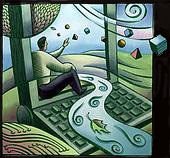
Anything on this blog caught your eye this month? Why not nominate it for the upcoming Carnival of Bible Blogs?? In fact, please nominate good stuff from any Bible blog that you have enjoyed this month. Just submit/nominate posts via the submission form at BlogCarnival.com or you may email them directly to biblical_studies_carnival AT hotmail DOT com.
For more information, click here, or leave me a question in the "Comments" section below.
Monday, December 25, 2006
My Picks of Christmas Images at Flickr
From Alberta, Canada, "Christmas Tree Under the Northern Lights":

A shot from Niagara Falls called "Ready for Company":

This Cat named "Bear" is "Into Christmas":

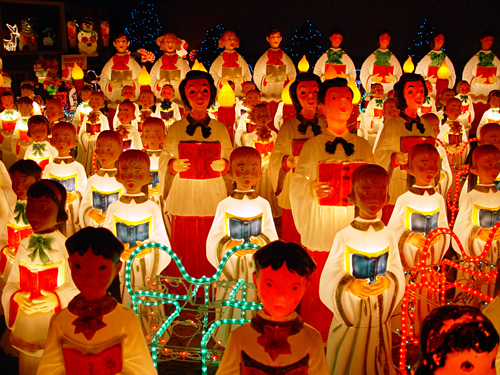
This last one is called "You Can't Catch Me...":


A shot from Niagara Falls called "Ready for Company":

This Cat named "Bear" is "Into Christmas":

Christmas Choir in a Yard in Belleville:

This last one is called "You Can't Catch Me...":

Labels: Flickr
Sunday, December 24, 2006
Saturday, December 23, 2006
GRACE
The amazing song "Grace" by U2 is now explicated in a fantastic way by Benjamin Myers on his "Faith and Theology" blog (click here).
Here are some brief excerpts from Ben's commentary:
...Many preachers, perhaps even many theologians, do not understand the grace of God half as well as this song does.
...The song’s personification of grace is superb; but the music is just as important, especially that simple, carefree guitar riff on which the whole song rests. Even before Bono starts to sing, this riff itself already conveys everything the song wants to say about grace. The riff is as smooth as a woman’s hips, as soft and easy as her footsteps on the street.
Here are the lyrics:
Grace, she takes the blame
She covers the shame
Removes the stain
It could be her name
Grace, it's the name for a girl
It's also a thought that changed the world
And when she walks on the street
You can hear the strings
Grace finds goodness in everything
Grace, she's got the walk
Not on a ramp or on chalk
She's got the time to talk
She travels outside of karma
She travels outside of karma
When she goes to work
You can hear her strings
Grace finds beauty in everything
Grace, she carries a world on her hips
No champagne flute for her lips
No twirls or skips between her fingertips
She carries a pearl in perfect condition
What once was hurt
What once was friction
What left a mark
No longer stings
Because Grace makes beauty
Out of ugly things
Grace makes beauty out of ugly things
Here are some brief excerpts from Ben's commentary:
...Many preachers, perhaps even many theologians, do not understand the grace of God half as well as this song does.
...The song’s personification of grace is superb; but the music is just as important, especially that simple, carefree guitar riff on which the whole song rests. Even before Bono starts to sing, this riff itself already conveys everything the song wants to say about grace. The riff is as smooth as a woman’s hips, as soft and easy as her footsteps on the street.
Here are the lyrics:
Grace, she takes the blame
She covers the shame
Removes the stain
It could be her name
Grace, it's the name for a girl
It's also a thought that changed the world
And when she walks on the street
You can hear the strings
Grace finds goodness in everything
Grace, she's got the walk
Not on a ramp or on chalk
She's got the time to talk
She travels outside of karma
She travels outside of karma
When she goes to work
You can hear her strings
Grace finds beauty in everything
Grace, she carries a world on her hips
No champagne flute for her lips
No twirls or skips between her fingertips
She carries a pearl in perfect condition
What once was hurt
What once was friction
What left a mark
No longer stings
Because Grace makes beauty
Out of ugly things
Grace makes beauty out of ugly things
Reminder Re: Preaching Micah 5 Tomorrow
 Update: PamBG has uploaded a lovely sermon she has finished on Micah 5 to her blog. I certainly commend it to you (click here). I'll post an excerpt below.
Update: PamBG has uploaded a lovely sermon she has finished on Micah 5 to her blog. I certainly commend it to you (click here). I'll post an excerpt below.Just a reminder that I have several posts providing expository notes on Micah 5:2-5 for this Sunday (4 Advent, Year C).
Click here, here, here, and here. Comments on the text are welcome, as are links or excerpts from any homilies or sermons that you end up preparing.
Brief excerpt from PamBG's sermon:
But here is the glorious bit of redemption. Here is the incidence of “shimmering surprises and outlandish innovation and renewal”… God says that the Messiah is going to come from one of these poor country villages! From Bethlehem. The Messiah is going to come from a lowly place. A place where the people are oppressed and where the king is happy to use them as cannon fodder and abandon them to their deaths. God cares about this little village which humankind mocks. God’s outlandish innovation is that the Messiah, the saviour of the universe, is going to born amongst the lowest of the low. God’s shimmering surprise is that that the people the world despises are people of infinite worth to God. Imagine! The world tells you that you are dirt, that you are scum and God’s prophet comes along and says, “Out of you, I will bring a ruler for Israel and people all over the earth will acknowledge his greatness.” The earthly religious system thought they had it all figured out. The Messiah was going to be born in Jerusalem of a prominent family. He was going to be a great military leader who would ensure a great victory of independence for his people. But God had other plans...
Karaite Book of Exodus (Sackler Exhibit, Post 4)
For the immediately preceding post in this series, click here.
The next early Bible that caught my eye in the "Bibles Before the Year 1000" exhibit at the Sackler was the Karaite Book of Exodus (click image to enlarge):

Do take a moment to click and enlarge the image. The beauty of the book will hit you immediately: the soft aged-paper background, the dark swirl of the writing, the shining gilded-chains of gold, and the shadowy bleeding through of letters from reverse sides of the pages.
The book comes from tenth-century Egypt or Palestine and was produced by the Karaite sect of Judaism. Its language is Hebrew, but Hebrew written in Arabic characters (with Masoretic "Hebrew" vowel points!).
The gold chain on the right-hand page marks the end of Exodus 6. The gold filler on the left page marks Exodus 7:8, where a new paragraph begins. If you look closely, you can see that it appear to be made up of little overlapping hearts laid on their sides.
The next early Bible that caught my eye in the "Bibles Before the Year 1000" exhibit at the Sackler was the Karaite Book of Exodus (click image to enlarge):

Do take a moment to click and enlarge the image. The beauty of the book will hit you immediately: the soft aged-paper background, the dark swirl of the writing, the shining gilded-chains of gold, and the shadowy bleeding through of letters from reverse sides of the pages.
The book comes from tenth-century Egypt or Palestine and was produced by the Karaite sect of Judaism. Its language is Hebrew, but Hebrew written in Arabic characters (with Masoretic "Hebrew" vowel points!).
The gold chain on the right-hand page marks the end of Exodus 6. The gold filler on the left page marks Exodus 7:8, where a new paragraph begins. If you look closely, you can see that it appear to be made up of little overlapping hearts laid on their sides.
Friday, December 22, 2006
Simply Beautiful Meditation, "O Gracious Light"
Courtesy of the Episcopal Diocese of Washington, here is an audio visual meditation, inspired by the Phos Hilaron, featuring photographs of Walter P. Calahan of light playing on the walls of the Washington National Cathedral, and the music of The Princeton Singers. Click the photo to begin:


Labels: video; spirituality
Humor: Surviving Relatives over Christmas Weekend!
Just for fun: A product to help us all survive our families at holiday time:
Labels: humor, humor; video
The Messiah from Bethlehem, continued
For the immediately preceding post in this series on preparing a sermon / homily on Micah 5 (Advent 4, Year C), click here. (Also, can we have some comments on this Sunday's text from Micah? Mere musings? Pretty please?)

Micah understands God’s Messiah to be a humble, peripheral figure from an overlooked sector of society. He will rule in complete dependence on the strength and majesty of his God and be concerned only with nurturing God’s flock (Micah 5:4), not with personal enrichment and aggrandizement.

According to Psalm 78, King David was originally such a figure. God took him from the rural countryside, “from tending the nursing ewes,” and “brought him to be the shepherd of his people.” Thereafter, “with upright heart he tended them,” and “guided them with skillful hand” (78:71–72).
It is no coincidence that Micah and the Asaph Psalms (including Ps 78) are from the same stream of theological tradition in the Bible.

Micah understands God’s Messiah to be a humble, peripheral figure from an overlooked sector of society. He will rule in complete dependence on the strength and majesty of his God and be concerned only with nurturing God’s flock (Micah 5:4), not with personal enrichment and aggrandizement.

According to Psalm 78, King David was originally such a figure. God took him from the rural countryside, “from tending the nursing ewes,” and “brought him to be the shepherd of his people.” Thereafter, “with upright heart he tended them,” and “guided them with skillful hand” (78:71–72).
It is no coincidence that Micah and the Asaph Psalms (including Ps 78) are from the same stream of theological tradition in the Bible.
Thursday, December 21, 2006
OT News from My Seminary Alma Mater

The initial phase of a search to replace Dr. Maier was underway at SBL. We shall keep a close eye on the process.
For the YDS singing Christmas Card (with appeal for support), click here.
Background for Sunday: King Hezekiah's Era
For the immediately preceding post on Micah 5, click here.
We have been mentioning Micah's reaction against the abuse of centralized power in his times. Let me briefly give a few more details about what King Hezekiah was up to in this era, and how it was affecting Micah and his kinfolk in the rural areas of Judah.
Although Hezekiah is notable for good reforms in the area of worship, his reign was sadly lacking in the areas of economic and legal justice. His negligence in these areas stemmed in no small measure from his determined efforts to fortify Jerusalem and its satellite fortresses against a mounting military threat from the Assyrian empire to the east. For a good summary of all this, click here. For a summary of a very recent lecture on Hezekiah by Nadav Na'aman, click here (with some interesting back-and-forth in the comments that follow the post).
Although Hezekiah is notable for good reforms in the area of worship, his reign was sadly lacking in the areas of economic and legal justice. His negligence in these areas stemmed in no small measure from his determined efforts to fortify Jerusalem and its satellite fortresses against a mounting military threat from the Assyrian empire to the east. For a good summary of all this, click here. For a summary of a very recent lecture on Hezekiah by Nadav Na'aman, click here (with some interesting back-and-forth in the comments that follow the post).
Here is a great image of work on the walls of Jerusalem under Hezekiah:
Through an amazing engineering feat, he also channeled the Jerusalem's water supply inside the city by means of a tunnel cut through underground rock. Here is a photo of me inside this famous tunnel:
All these building projects took a heavy toll on the people of the countryside, Micah's constituency. In effect, Hezekiah abandoned the country-folk, planning to leave their villages, homes, and lands exposed during the Assyrian invasion. When the armies of Assyria came, the people would have to rush to the fortified cities to defend them during long periods of Assyrian siege.
In the meanwhile, marshal law and forced work on the fortification of Jerusalem and the fortresses was the order of the day. Add to all this, the cheating and land-grabbing of Jerusalem's elite, who were accumulating vasts tracks of land for themselves at the expense of country citizens, and you can see why God announced through Micah the coming of a Messiah whose kingdom was not "of this world," i.e., based in the mindset of this sort of Jerusalem and this sort of king (Hezekiah).
Wednesday, December 20, 2006
Thank You for Supporting this Blog

Maybe I don't say this often enough, but Thank You to all who read and support my blog. This little blog is growing slowly, but it is growing month by month. As you can see in the graph below, December is not even over and we'll quickly pass 2,000 hits just this month. Not bad for a blog that I started at the end of June!
I want especially to thank those people who have been buying Christmas presents from Amazon through the links on this site. It is really extremely thoughtful of you to do this, and I really appreciate it.
A Joyful Word from Sudan
There is happy news to share from Renk College, Sudan, which readers have gotten to know by now through my many posts. Fr. Joseph, Principle of Renk College (see photo below), and his wife Rhoda now have two healthy happy baby girls – born yesterday in Khartoum by c-section, somewhere around 5 lbs in weigh, one to be called Jackie and (possibly?) the other Frances. Rhoda is well and all are rejoicing! A wonderful, double Christmas gift.
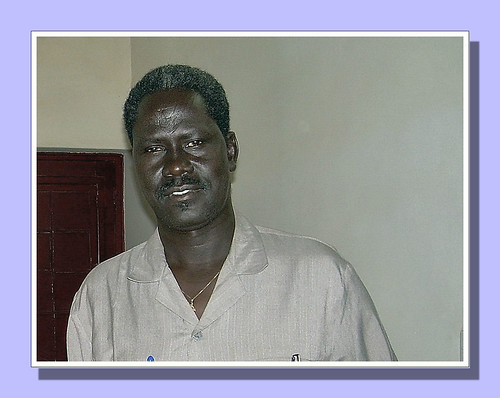

Preaching Micah 5 this Sunday, 4 Advent, Year C (post 2)
We have been working on preparing Micah 5:2-5 for exposition this Sunday, the fourth Sunday of Advent, Year C. For the preceding post in this series, please click here.
 According to Micah 5:2-5, God's coming ideal ruler will specifically not come from Jerusalem! He will specifically not derive his authority from a hierarchically organized system of control and "security," and a militarized array of defense.
According to Micah 5:2-5, God's coming ideal ruler will specifically not come from Jerusalem! He will specifically not derive his authority from a hierarchically organized system of control and "security," and a militarized array of defense.
This, I firmly believe, is exactly what Jesus means when, in John 18:36, he declares that his kingdom is not of this world. Please do not imagine that Jesus wants you to think that his kingdom is purely spiritual and ethereal! Not at all. The reign of God will be very much "this-worldly"! It will fully change real-life economics, politics, and culture here on earth. That it is not "of this world" means that it is not based on human structures of political and military power. It is based on deeper powers and more profound truths.
All this is already clear in Micah 5. Here, in 5:2, Bethlehem is called by its clan name "Ephrathah." Verse 2 goes on to use more language of clans and kinship. It returns us to the world of pre-state, village-period Israel, where folks supported each other as kin, as brothers and sisters.
"Ephrathah." Verse 2 goes on to use more language of clans and kinship. It returns us to the world of pre-state, village-period Israel, where folks supported each other as kin, as brothers and sisters.
Bethlehem is "small among the clans of Judah." God can work wonders when folk recognize that they are "small" and get out of God's way.
In Micah 5, the prophet announces that God has had enough with the arrogance and greed of proud capital cities like Jerusalem, and with the cold-hearted, state-systems centered in them. God is turning back to the older, more humble lifestyle of village-period Israel. After all, David's line, "from ancient times" (5:2), first stemmed out of the countryside, as part of a rural, peripheral clan. God's coming, ideal ruler from David's line must turn back to such humble, mild roots. He must not try to usher in a kingdom based on a power-hungry, militaristic approach. His kingdom is "not of this world."
The messiahship of Jesus Christ fits Micah's prophecy to the letter. Christ lived out Micah's message that power-politics and military force can never achieve God's reign. God's reign has to be built up on a lifestyle of friendship, caring, and mutuality---the sort of lifestyle fostered in Israel's old clans such as Ephrathah, where groups of kin constantly loved and looked out for each other. It has to be based on a lifestyle like that of Ruth, one of Bethlehem's most famous inhabitants. Ruth gave up everything and put it all on the line to support her husband's and mother-in-law's family, kin-group, and clan.
Christ lived out Micah's message that power-politics and military force can never achieve God's reign. God's reign has to be built up on a lifestyle of friendship, caring, and mutuality---the sort of lifestyle fostered in Israel's old clans such as Ephrathah, where groups of kin constantly loved and looked out for each other. It has to be based on a lifestyle like that of Ruth, one of Bethlehem's most famous inhabitants. Ruth gave up everything and put it all on the line to support her husband's and mother-in-law's family, kin-group, and clan.
 According to Micah 5:2-5, God's coming ideal ruler will specifically not come from Jerusalem! He will specifically not derive his authority from a hierarchically organized system of control and "security," and a militarized array of defense.
According to Micah 5:2-5, God's coming ideal ruler will specifically not come from Jerusalem! He will specifically not derive his authority from a hierarchically organized system of control and "security," and a militarized array of defense.This, I firmly believe, is exactly what Jesus means when, in John 18:36, he declares that his kingdom is not of this world. Please do not imagine that Jesus wants you to think that his kingdom is purely spiritual and ethereal! Not at all. The reign of God will be very much "this-worldly"! It will fully change real-life economics, politics, and culture here on earth. That it is not "of this world" means that it is not based on human structures of political and military power. It is based on deeper powers and more profound truths.
All this is already clear in Micah 5. Here, in 5:2, Bethlehem is called by its clan name
 "Ephrathah." Verse 2 goes on to use more language of clans and kinship. It returns us to the world of pre-state, village-period Israel, where folks supported each other as kin, as brothers and sisters.
"Ephrathah." Verse 2 goes on to use more language of clans and kinship. It returns us to the world of pre-state, village-period Israel, where folks supported each other as kin, as brothers and sisters.Bethlehem is "small among the clans of Judah." God can work wonders when folk recognize that they are "small" and get out of God's way.
In Micah 5, the prophet announces that God has had enough with the arrogance and greed of proud capital cities like Jerusalem, and with the cold-hearted, state-systems centered in them. God is turning back to the older, more humble lifestyle of village-period Israel. After all, David's line, "from ancient times" (5:2), first stemmed out of the countryside, as part of a rural, peripheral clan. God's coming, ideal ruler from David's line must turn back to such humble, mild roots. He must not try to usher in a kingdom based on a power-hungry, militaristic approach. His kingdom is "not of this world."
The messiahship of Jesus Christ fits Micah's prophecy to the letter.
 Christ lived out Micah's message that power-politics and military force can never achieve God's reign. God's reign has to be built up on a lifestyle of friendship, caring, and mutuality---the sort of lifestyle fostered in Israel's old clans such as Ephrathah, where groups of kin constantly loved and looked out for each other. It has to be based on a lifestyle like that of Ruth, one of Bethlehem's most famous inhabitants. Ruth gave up everything and put it all on the line to support her husband's and mother-in-law's family, kin-group, and clan.
Christ lived out Micah's message that power-politics and military force can never achieve God's reign. God's reign has to be built up on a lifestyle of friendship, caring, and mutuality---the sort of lifestyle fostered in Israel's old clans such as Ephrathah, where groups of kin constantly loved and looked out for each other. It has to be based on a lifestyle like that of Ruth, one of Bethlehem's most famous inhabitants. Ruth gave up everything and put it all on the line to support her husband's and mother-in-law's family, kin-group, and clan.
Tuesday, December 19, 2006
Nativity, Petrus Christus, 1450
This is my third post on our SBL tour of biblical themes in the National Gallery of Art Collections. (Click here for post # 1 and click here for post # 2.)
Here is another painting on the tour presenting the Creche, i.e., representing Christ's nativity in the stable at Bethlehem. It is by Petrus Christus, created 1450 ce. The clothes and countryside are Flemish and Netherlandish.



Here is another painting on the tour presenting the Creche, i.e., representing Christ's nativity in the stable at Bethlehem. It is by Petrus Christus, created 1450 ce. The clothes and countryside are Flemish and Netherlandish.

What I love about this devotional piece is how clearly it places Advent in the context provided by the Old Testament. For example, the painting asks you to consider the Nativity in parallel with Moses' encounter with God at the burning bush. Thus, in the following detail-image, Joseph, like Moses, has removed his footwear:

Notice the figure of Adam in the right portion of the detail-image as well. He is heavily burdened by the weight of sin, which entered the world in the Genesis 3 story.
In fact, the sculpted archway framing the scene of the creche contains various depictions of the Genesis Fall, which Christ's Advent acts to reverse. Here is another detail-image, showing Adam and Eve banished from Eden due to the problem of sin.

Labels: art











